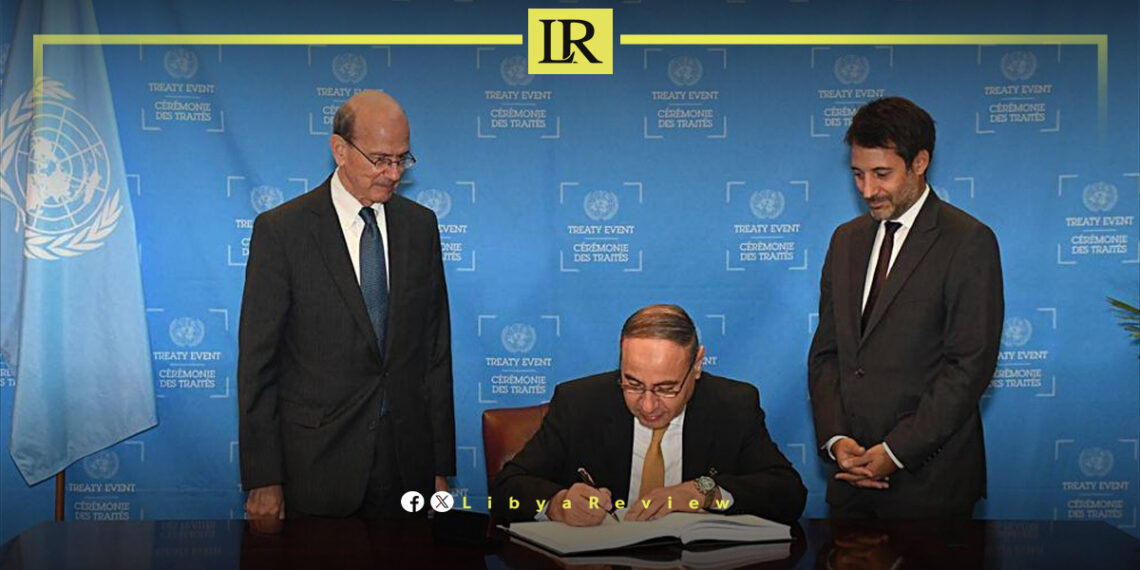The Libyan Ministry of Foreign Affairs under the Government of National Unity (GNU) has confirmed that Libya has officially signed the United Nations Convention on the Immunity of States and Their Property from the Jurisdiction of Foreign Courts. This significant move is aimed at safeguarding Libya’s state assets abroad from foreign legal claims.
The agreement was signed by Acting Foreign Minister Al-Taher Al-Baour at the conclusion of Libya’s participation in the 79th session of the United Nations General Assembly in New York. According to the Ministry, the signing of this convention is an essential step toward ensuring the protection of Libya’s assets and properties from potential foreign seizures.
In addition to this, Al-Baour also signed Libya’s accession to the Judicial Sale of Ships Convention, known as the Beijing Convention, further strengthening the country’s legal standing in international maritime trade.
The Ministry emphasized that these agreements mark a significant step in shielding Libya’s state properties abroad, following thorough consultations between relevant judicial and political institutions within the country.
Libya has been in chaos since a NATO-backed uprising toppled longtime leader Muammar Gaddafi in 2011. The county has for years been split between rival administrations.
Libya’s economy, heavily reliant on oil, has suffered due to the ongoing conflict. The instability has led to fluctuations in oil production and prices, impacting the global oil market and Libya’s economy.
The conflict has led to a significant humanitarian crisis in Libya, with thousands of people killed, and many more displaced. Migrants and refugees using Libya as a transit point to Europe have also faced dire conditions.
The planned elections for December 2021 were delayed due to disagreements over election laws and the eligibility of certain candidates. This delay has raised concerns about the feasibility of a peaceful political transition.
Despite the ceasefire, security remains a significant concern with sporadic fighting and the presence of mercenaries and foreign fighters. The unification of the military and the removal of foreign forces are crucial challenges.


